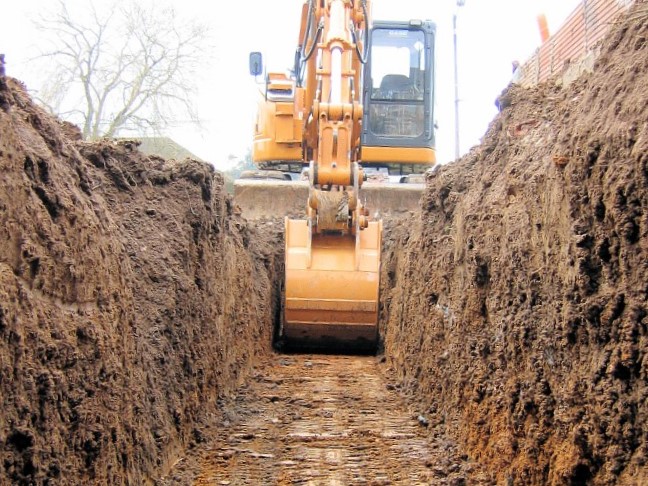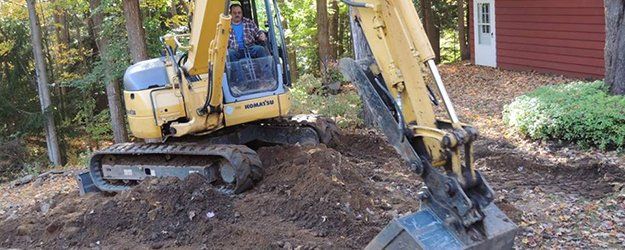Comprehensive Excavation Strategies: Grasping the Principles for Success
In the realm of construction and civil design, the importance of reliable excavation methods can not be overemphasized. The mindful preparation, accurate implementation, and precise interest to information required in excavation jobs require a detailed strategy that encompasses different essential aspects. From preliminary dirt evaluation to the execution of precaution and routine development tracking, mastering these core components is necessary for achieving success in any excavation undertaking. Nevertheless, truth proficiency exists not just in understanding these principles yet in flawlessly incorporating them to browse the complexities of excavation jobs with skill.
Recognizing Excavation Project Preparation

The preliminary phase of any type of excavation project is the preparation stage, where crucial choices are made that can dramatically influence the end result of the job. Recognizing the job timeline, budget plan, and range constraints is crucial for developing a thorough excavation plan that makes sure the job's success.
One trick aspect of excavation project preparation is the advancement of a detailed timeline that describes the series of deadlines, tasks, and landmarks. This timeline works as a roadmap for the task group, permitting them to track development and make required changes to guarantee the task remains on routine. Additionally, a distinct budget that accounts for all expenses, including equipment service, labor costs, and materials, is necessary for staying clear of cost overruns and delays. By meticulously taking into consideration all these elements during the drawing board, excavation tasks can be executed effectively and successfully, resulting in successful end results.
Soil Evaluation and Website Analysis
Conducting complete soil evaluation and site evaluation is an important action in the preparation stage of any kind of excavation project. Dirt analysis entails determining the make-up, framework, and properties of the dirt at the excavation site. This info is important for recognizing the dirt's bearing capacity, dampness content, and possibility for erosion, which are key consider identifying the excavation methods and devices required for the task.
Website evaluation surpasses soil analysis and encompasses a wider assessment of the overall site problems. This evaluation includes recognizing any kind of possible threats, such as underground utilities, environmental problems, or unpredictable terrain, that could affect the excavation procedure. By completely examining the website, job supervisors can develop reliable excavation strategies that focus on security, effectiveness, and environmental management.
Using sophisticated technologies like ground-penetrating radar, soil sampling, and drone surveys can boost the precision and efficiency of soil analysis and site evaluation. Spending time and resources in these preliminary actions can eventually conserve time and stop pricey hold-ups or difficulties during the excavation procedure.
Tools Choice and Utilization
Effective excavation projects rely heavily on critical tools option and usage to make sure optimum efficiency and performance. Choosing the right equipment for the task is vital in making the most of performance and minimizing downtime. Elements such as the sort of soil, depth of excavation, and task scope play a considerable duty in establishing one of the most ideal equipment for the task available.

In enhancement to picking the ideal devices, proper application is crucial to task success. Operators must be original site trained to manage the tools safely and successfully - lancaster excavation. Routine upkeep checks and prompt repair services assist avoid break downs and make sure regular performance throughout the job
Security Procedures and Rules Conformity
In the realm of excavation tasks, prioritizing safety actions and compliance with guidelines is extremely important to making sure a legally audio and safe and secure functional setting. Precaution encompass a range of practices, including conducting complete site evaluations, applying proper signage and barriers, and supplying ample safety training for all employees associated with the excavation procedure. Adherence to regulations, such as OSHA demands in the United States, ensures that the excavation job fulfills the required requirements to shield workers, bystanders, and the surrounding environment.

Surveillance Progression and Adjusting Strategies
Exactly how can forecast managers effectively track the advancement of excavation tasks and adjust their strategies as necessary to optimize outcomes? Tracking progression is why not try these out crucial for making sure that excavation jobs stay on track and meet target dates.

Verdict
In conclusion, grasping the basics of thorough excavation strategies is essential for the success of any kind of job. By understanding project preparation, evaluating soil and site conditions, picking proper equipment, conforming with safety policies, and monitoring development, project supervisors can ensure a efficient and smooth excavation procedure. Carrying out these strategies will lead to successful outcomes and minimize possible threats or troubles throughout the excavation job.
The first stage of any excavation project is the preparation phase, where vital choices are made that can dramatically influence the end result of the job. Understanding the job timeline, scope, and budget plan restraints is critical for developing an extensive excavation strategy that makes sure the project's success.
Exactly how can project managers properly track the improvement of excavation jobs and adapt their strategies appropriately to maximize results? By very closely keeping an eye on progress and being ready to adapt methods, project supervisors can enhance the total success of excavation jobs.
By recognizing project planning, assessing dirt and website conditions, picking appropriate equipment, complying with her latest blog safety regulations, and keeping track of progression, job supervisors can make sure a smooth and effective excavation procedure.